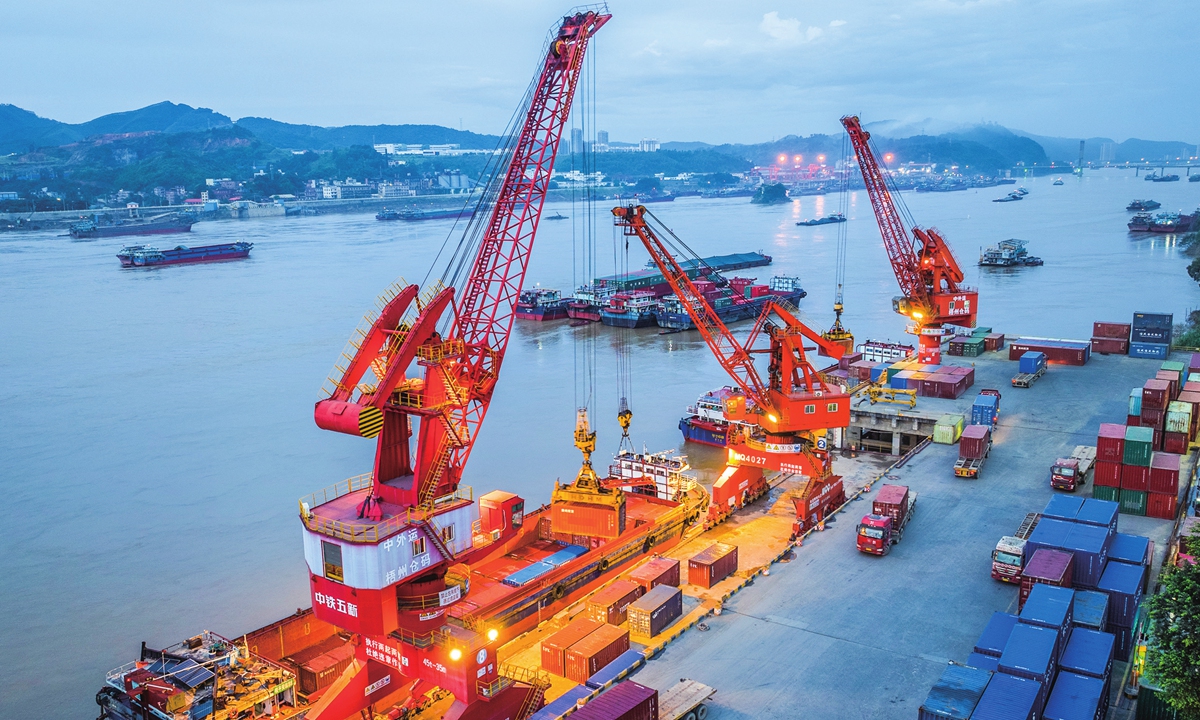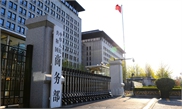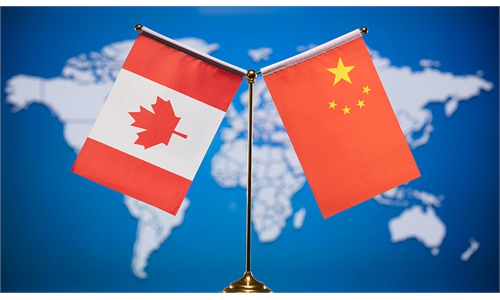Canada’s expanding tariffs on Chinese imports ‘one mistake after another’
More tariffs on Chinese goods used to woo its ‘trusted allies’: analysts

Trucks shuttle back and forth in a container terminal in Wuzhou, South China's Guangxi Zhuang Autonomous Region on June 26, 2024. China's foreign trade in the first five months of 2024 recorded a yearly increase of 6.3 percent amid the country's steady economic recovery. Photo: cnsphoto
Canada plans to expand unilateral trade measures on Chinese imports by levying tariffs on a number of Chinese products as early as next year, a report by the Canadian Department of Finance showed. The new restriction comes after Ottawa in October slapped a 100 percent tariff on all Chinese electric vehicles and a 25 percent tariff on imports of Chinese steel and aluminum products, as analyst said the move could be considered as Trudeau government's attempt to woo the Donald Trump administration.
The new tariff threat against China is "one mistake after another" made by the Canadian government, analysts said. Though taking aim at China is a common practice by Canada to please and stand with the policies of its US ally, the consequences of the new unilateral measures could backfire, analysts warned on Wednesday, as it may not only fail to strengthen the trading relationship with the US, but also inflict great inflationary risks on the Canadian economy.
The tariff plan comes after Canadian Prime Minister Justin Trudeau reportedly said last week that Canada "will respond" if US president-elect Donald Trump imposes new tariffs on Canadian imports. It is ironic how Canada, a "potential victim" of trade protectionism, now opts to weaponize the unilateral tool to target China in the name of "protecting its economy," observers stressed.
According to the 2024 Fall Economic Statement issued by the Canadian Department of Finance on Tuesday, it plans to launch more tariffs to "combat unfair Chinese trade practices," including on imports of certain solar products and critical minerals early in 2025, and on permanent magnets, natural graphite and semiconductors in 2026. The statement did not elaborate on the extent of the duties to be imposed, saying that further details on these tariff measures will be announced soon.
By "putting tariffs on the imports of goods from China that benefit from unfair, non-market policies," along with several other initiatives, "Canada is protecting its economy, and helping to build a strong and resilient North American economy," the statement noted.
"Canada has been closely following the US policies, looking to woo its so-called trusted allies. But the Canadian government should reconsider its strategy as the cost could be more unaffordable," Gao Lingyun, an expert at the Chinese Academy of Social Sciences in Beijing, told the Global Times.
"If Canada continues to impose tariff measures against Chinese imports, this will definitely weigh in on China-Canada economic and trade relations." Gao said.
In November president-elect Donald Trump has threatened to impose sweeping new tariffs on Mexico, Canada and China as soon as he takes office as part of his effort to crack down on illegal immigration and drugs. In response, Trudeau signaled that his government is preparing retaliation if Trump follows through on his threat, Bloomberg reported.
"Do not do unto others what you do not want done to yourself. Canada, being a victim of trade protectionism, should think twice about how it should handle trade and economic relations with other countries, including with China and the US. Otherwise, the Trudeau government could face more challenges next year," Zhou Mi, a senior research fellow at the Chinese Academy of International Trade and Economic Cooperation, told the Global Times on Wednesday.
Zhou took note of Canada green industries, where a number of Canadian companies across solar energy and photovoltaic sectors have relied on Chinese supply chain.
Canada is now facing a spiraling upward government deficit rate. Canada's fiscal deficit for the year ended March came in at C$61.9 billion ($43.45 billion) - about 50 percent more than what was projected, according to a Reuters report.
Observers said that if the incoming US government imposes tariffs on Canadian imports, it will drive up the inflation in Canada. And as a result, the Canadian government will inevitably have to provide large subsidies in a series of livelihoods areas such as food and energy, which could in turn lead to a sharp increase in Canada's deficit rate.




